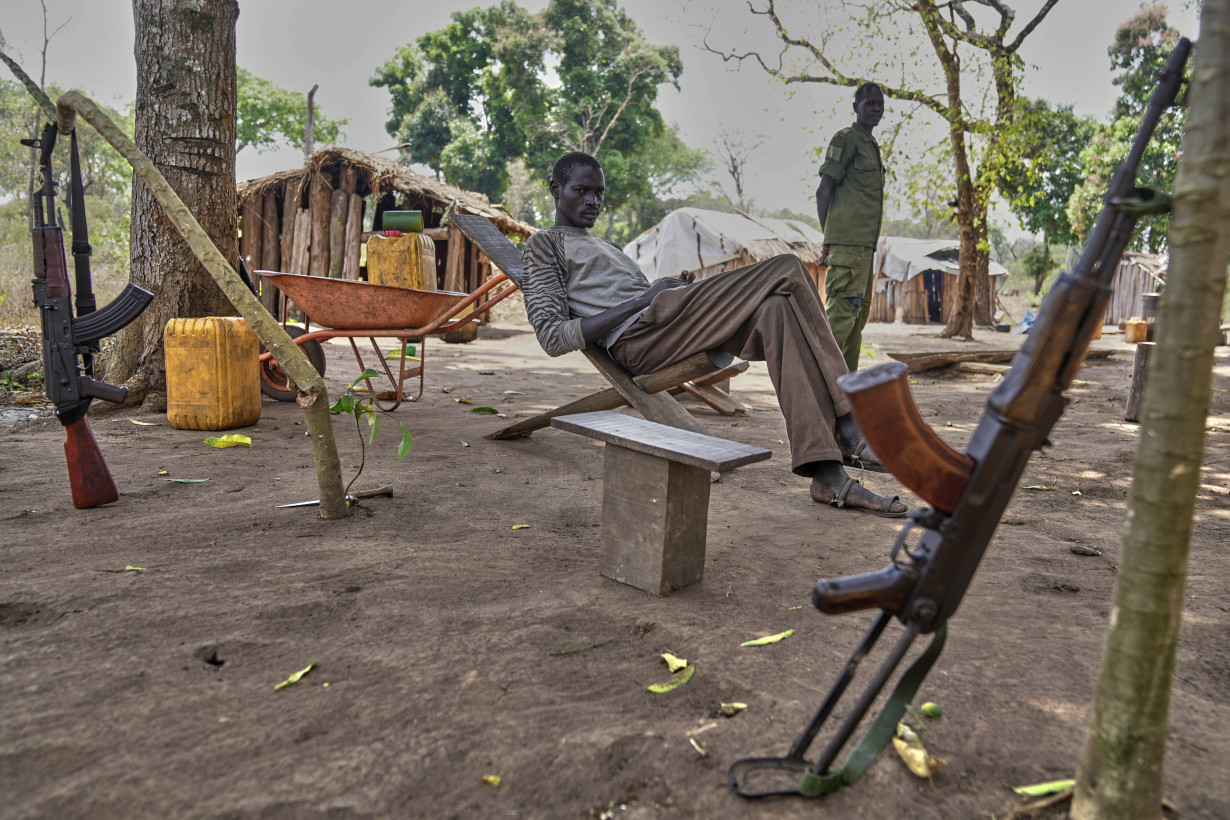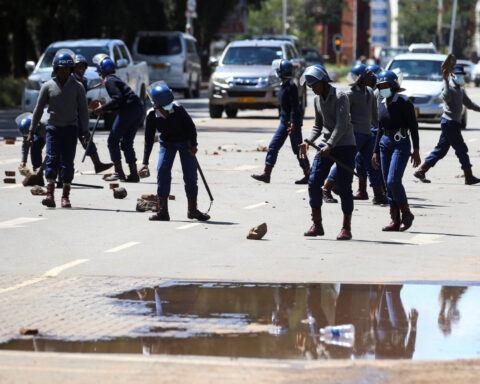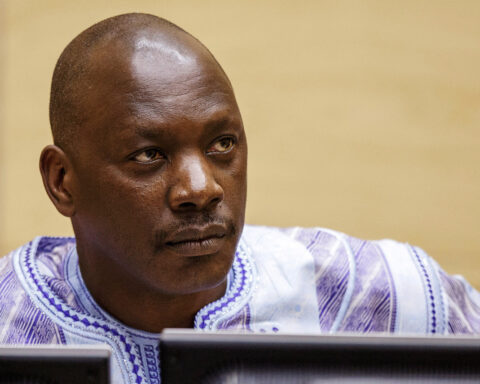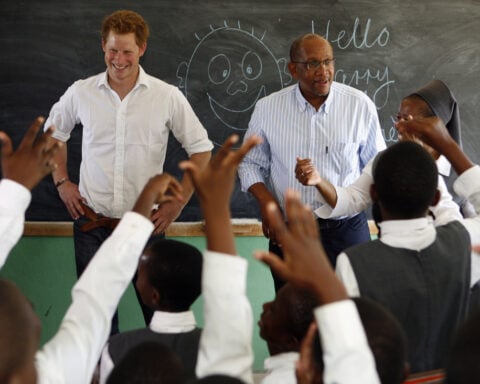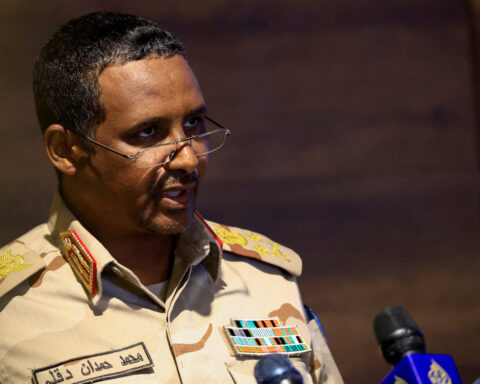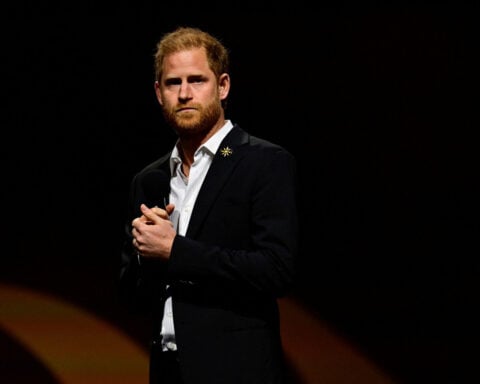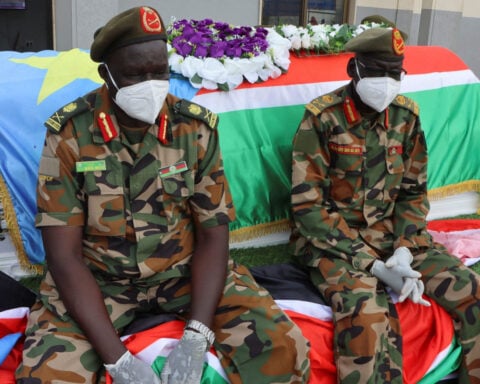KAMPALA, Uganda (AP) — Tensions are rising in the oil-rich east African nation of South Sudan after Riek Machar, who serves as one of the country’s vice presidents, was arrested in the capital.
Machar’s arrest in Juba on Wednesday followed detentions of his allies in the government and the army, including the army's deputy chief.
Machar’s political group said Thursday that a 2018 agreement that's the basis for relative peace after a brutal civil is effectively over, raising fears of a return to warfare as government troops loyal to President Salva Kiir battle soldiers and armed militia loyal to Machar.
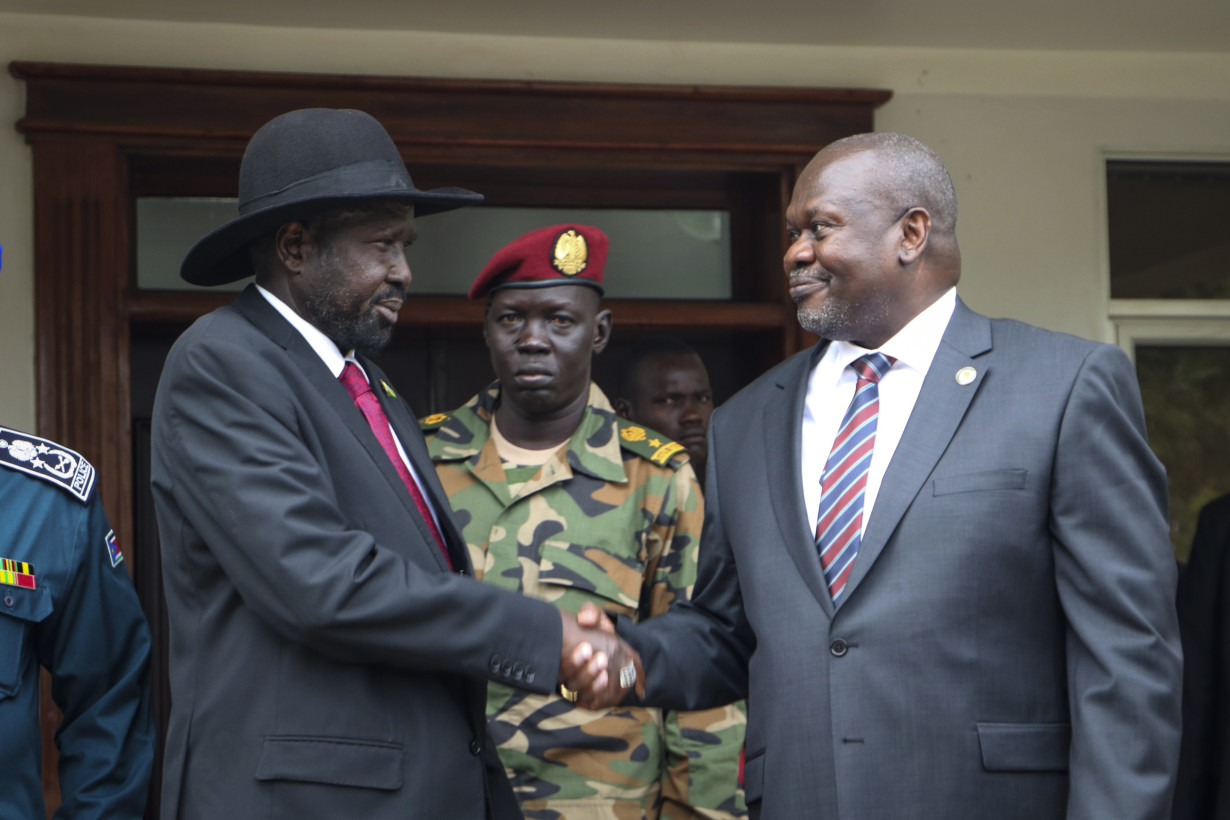
Here’s a look at the issues underpinning the conflict in South Sudan:
Why is there friction between Kiir and Machar?
Both Kiir and Machar are historical leaders of the rebel movement — the Sudan People’s Liberation Movement, or SPLM — that secured South Sudan’s independence from Sudan in 2011.
But they are from rival ethnic groups: Kiir is from the Dinka, the largest, and Machar is from the Nuer, the second-largest.
Their military rivalry began in the 1990s, when Machar led a breakaway unit that drew accusations of treachery against him. Amid the split, forces loyal to Machar carried out a massacre in the town of Bor that targeted the Dinka, angering rebel commander Kiir and John Garang, the movement's now-deceased political figurehead.
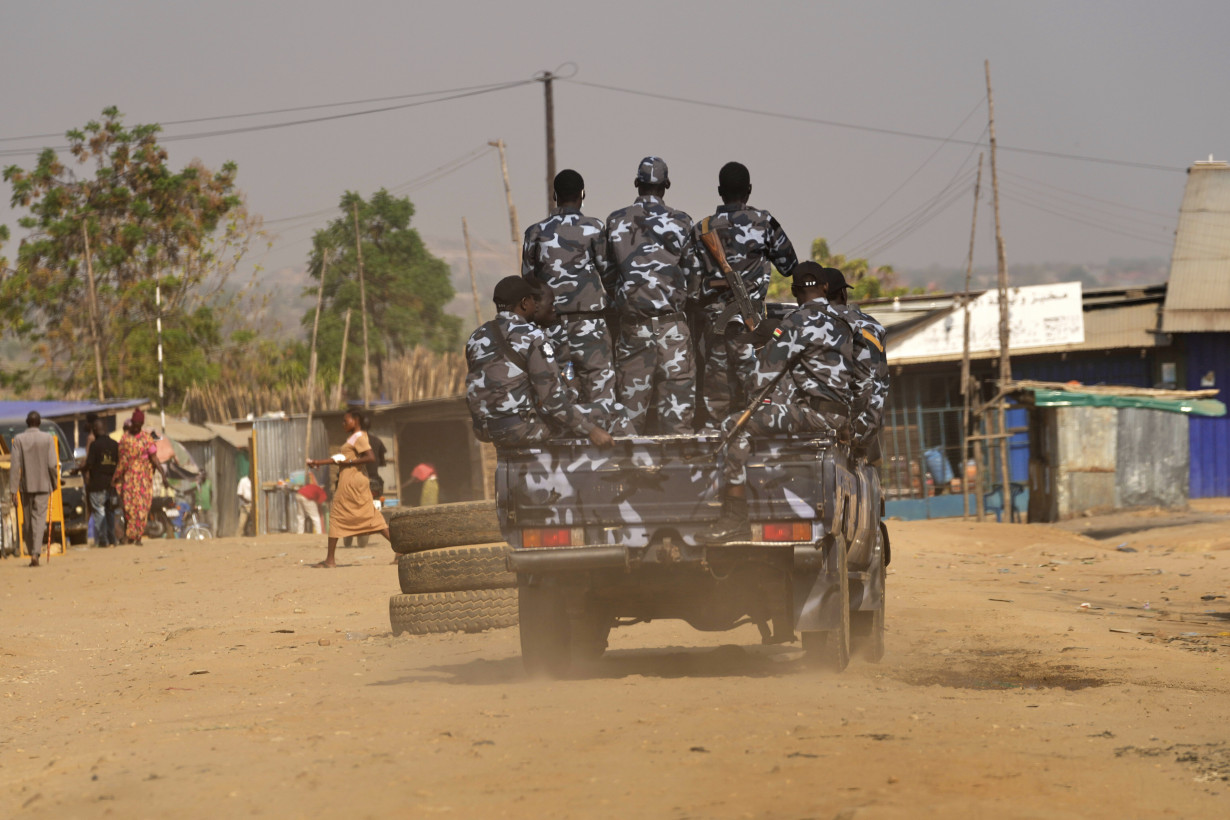
Fighting among southerners briefly undermined their struggle for independence, but it also planted lifelong distrust between Kiir and Machar.
Analysts say Machar and Kiir don’t see eye to eye even as they work together, and their feud has grown over the years as Machar waits his turn to become president and Kiir hangs on in the presidency.
In 2013, citing a coup plot, Kiir fired Machar as his deputy, and later that year violence erupted in Juba as government soldiers loyal to Kiir fought those devoted to Machar in the start of a civil war that killed an estimated 400,000 people.
What does Machar want?
Machar has served as South Sudan’s No. 2 official on and off since 2011. But there have been no elections since then, keeping him in the deputy's position and without real executive authority.
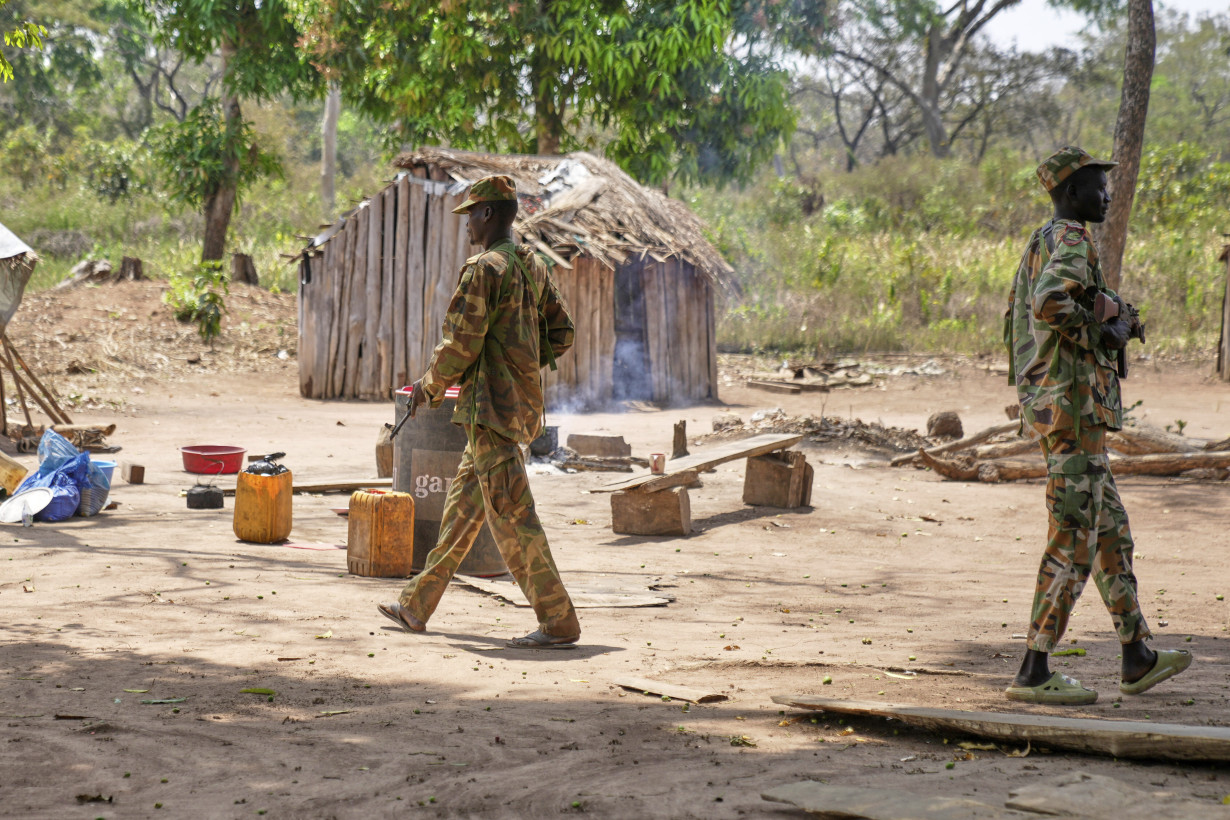
Machar’s wish is to become president in fulfilment of a century-old prophecy by a seer from his tribe who predicted that a man with a gap between his front teeth and left-handed would one day lead the nation. Machar, who has three university degrees, believes himself to be that man.
The superstition can seem odd, but many people see it as one factor fueling Machar’s ambitions.
Tensions between Machar and Kiir have grown with the repeated postponement of elections in South Sudan. A vote is now scheduled for December 2026, security conditions allowing, and Machar is expected to be a candidate.
He describes Kiir as a dictator, saying his unilateral political maneuvers, including firing officials, undermine the peace agreement that brought them together in a government of unity.
What's in the 2018 peace agreement?
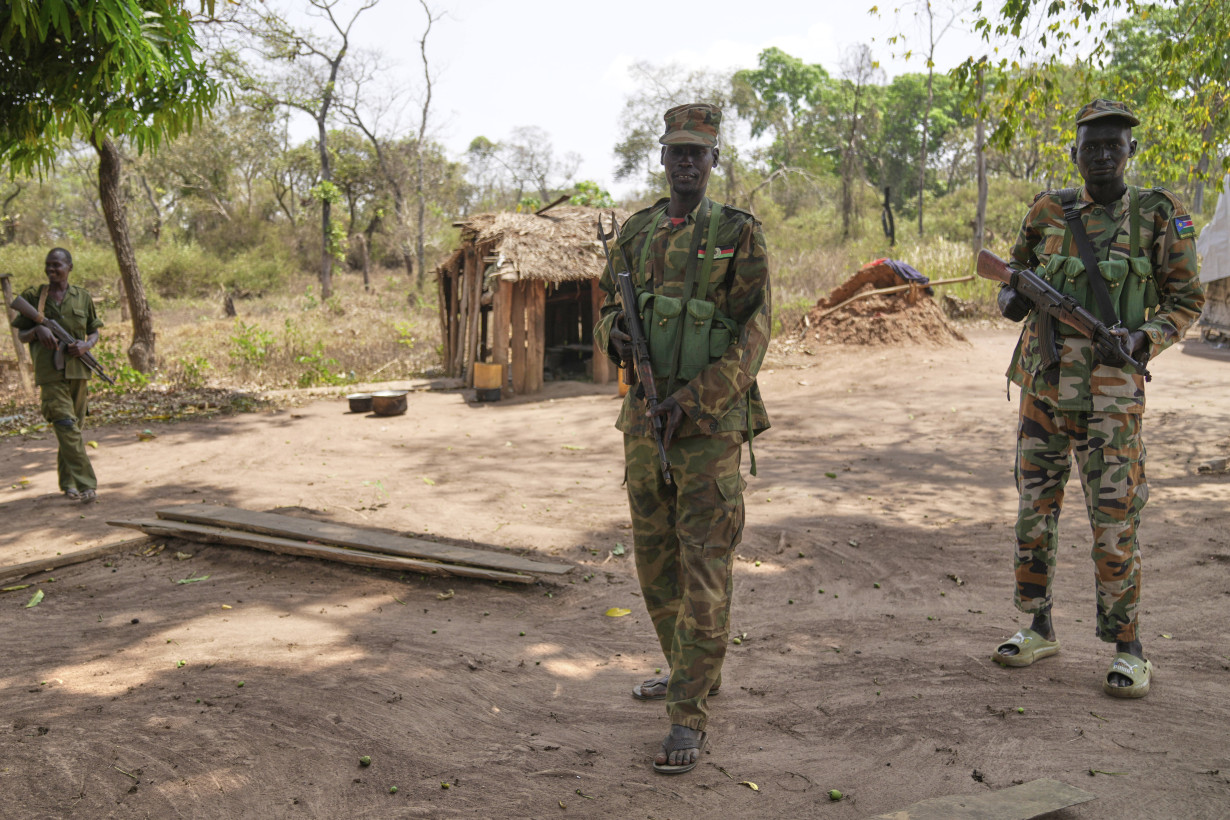
The agreement, signed with the support of the U.S. and others, included security guarantees for Machar to be able to return to Juba as Kiir’s deputy.
Fighters loyal to him are located at different sites in the country, and a key element of the agreement was the envisaged creation of a unified army command that incorporates soldiers loyal to Machar.
But efforts in this direction have been slow, and Kiir has been accused of undermining the process by making irregular military recruitments and purging army officers deemed not to be faithful to him.
Machar is also at a disadvantage in the contest with Kiir because he doesn't control the internal security apparatus, much of which is informal.
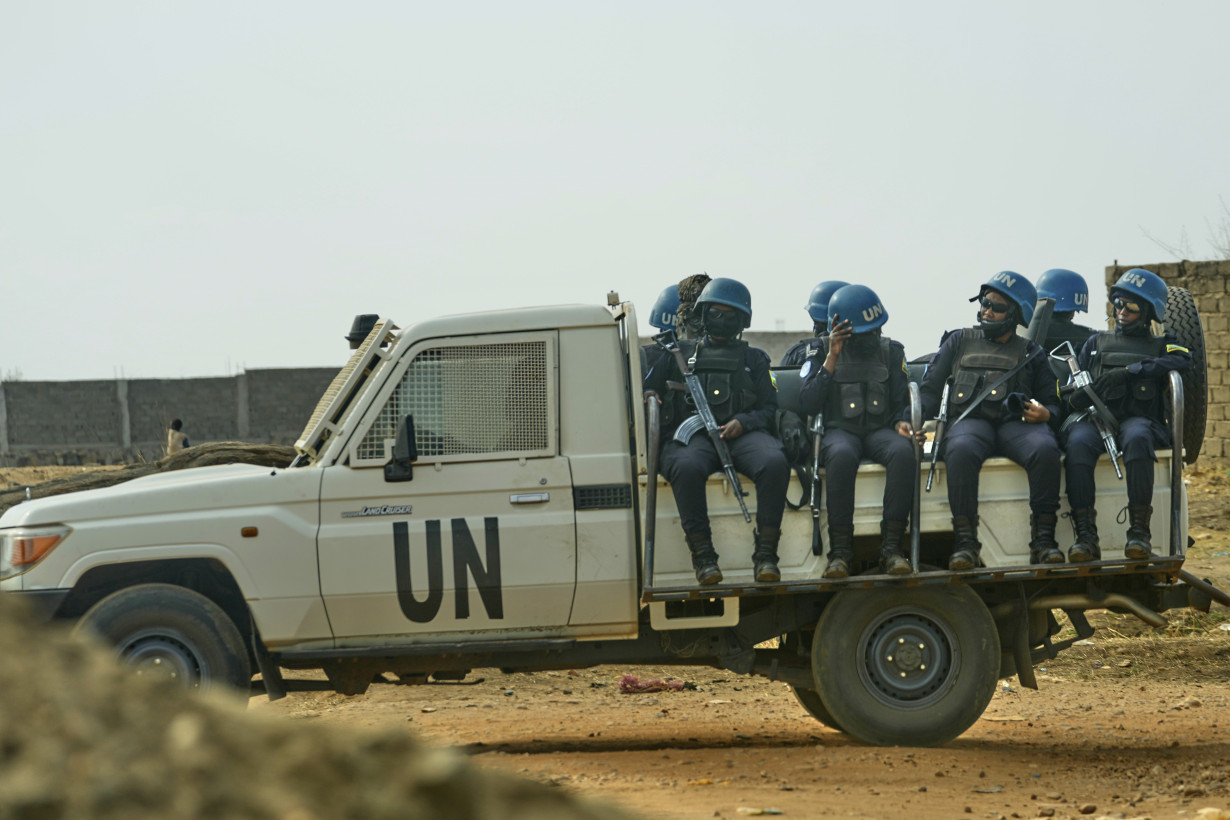
A major escalation of tensions happened in March when a Nuer militia, known as the White Army, seized an army garrison in Nasir, a town in Upper Nile state that's a stronghold of Machar.
Later, when a U.N. helicopter went to rescue government troops stranded there, it was attacked. Dozens were killed, including a miliary general who was the top commander of government troops there. While the violence is still largely restricted to Upper Nile, “the tinder is dangerously dry elsewhere," according to the International Crisis Group, a Brussels-based think tank.
How is Kiir able to stay in power?
Ugandan President Yoweri Museveni is Kiir’s key ally. In 2013, when the conflict first emerged, Museveni deployed Ugandan special forces who foiled attempts by Machar’s forces to take power in Juba.
Museveni has deployed troops again this time, in defiance of a U.N. arms embargo on South Sudan, but potentially helping to avoid an escalation of fighting between the warring parties. The Ugandan military says the deployment was in fact an effort to keep the peace process intact by firming up Kiir over Machar.
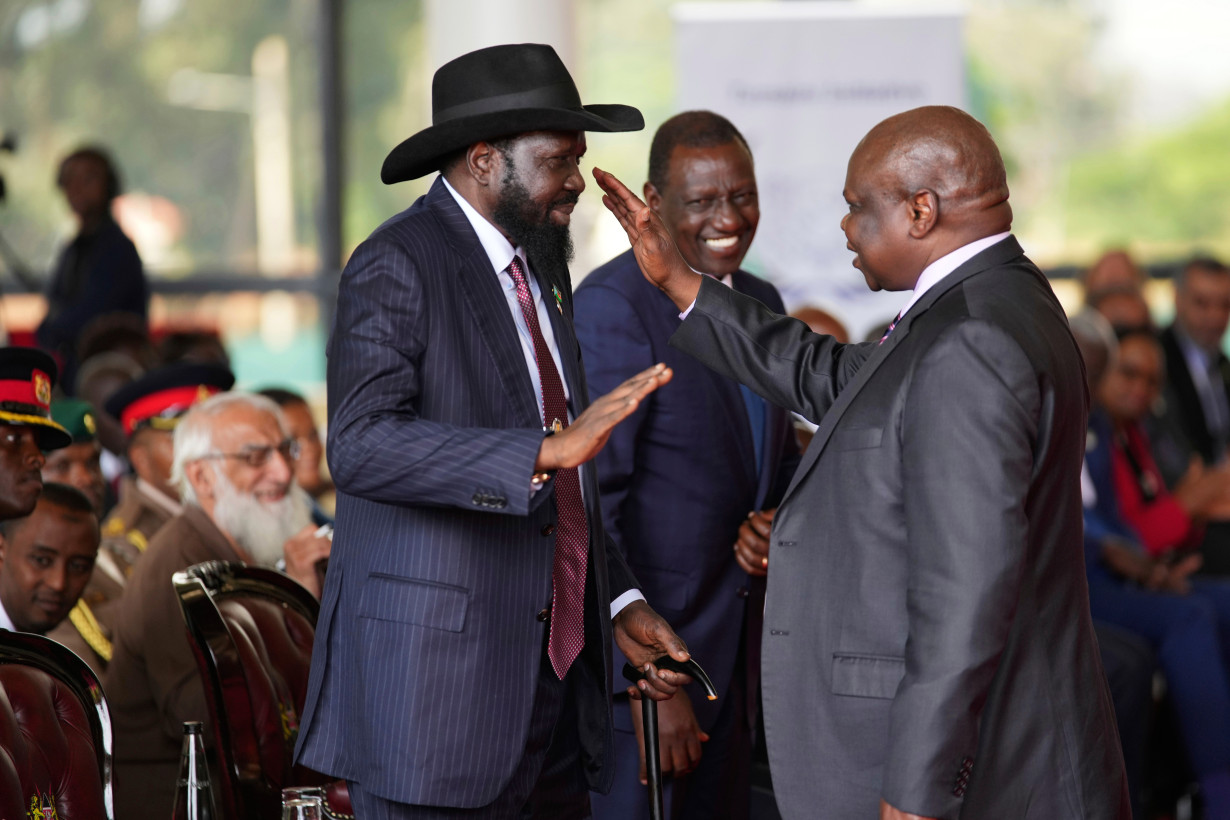
Kiir also controls the National Security Service, or NSS, the dreaded domestic spy agency whose agents are authorized to make arrests without warrants. The agency reports to the president, who routinely shuffles its leaders.
The NSS is “a vital tool in the government’s campaign of silencing dissent,” according to New York-based Human Rights Watch.
The Sentry, a Washington-based watchdog, says of the NSS that it “stands out as particularly ruthless, secretive, and well-funded. Fear of the NSS is pervasive in South Sudan, and for good reason.”

 Trump has begun another trade war. Here's a timeline of how we got here
Trump has begun another trade war. Here's a timeline of how we got here
 Canada's leader laments lost friendship with US in town that sheltered stranded Americans after 9/11
Canada's leader laments lost friendship with US in town that sheltered stranded Americans after 9/11
 Chinese EV giant BYD's fourth-quarter profit leaps 73%
Chinese EV giant BYD's fourth-quarter profit leaps 73%
 You're an American in another land? Prepare to talk about the why and how of Trump 2.0
You're an American in another land? Prepare to talk about the why and how of Trump 2.0
 Chalk talk: Star power, top teams and No. 5 seeds headline the women's March Madness Sweet 16
Chalk talk: Star power, top teams and No. 5 seeds headline the women's March Madness Sweet 16
 Purdue returns to Sweet 16 with 76-62 win over McNeese in March Madness
Purdue returns to Sweet 16 with 76-62 win over McNeese in March Madness
